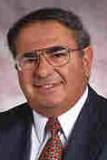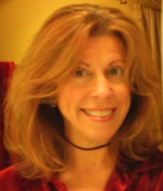|
Who We
Are
|
|
My most recent 216-episode TV Series - Exploring
the Illusion of Free Will |
|
Watch
our 138 shows on
YouTube,
windows streaming media and mpeg |
|
Watch our over 30 "producer's
choice" shows
|
|
What is
Happiness? |
|
Why is Happiness so Important? |
|
World's
Happiest Countries |
|
Happiness Facts |
|
Happiness Benefits |
|
The APACHE Method
(Positive Adjectives Technique and List) |
|
The Ortega Happiness
Method |
|
Other Ways of Becoming Happier |
|
Happiness Increase Experiments |
|
Top
Happiness Researchers and Promoters |
|
Dr. M. Fordyce |
|
George Ortega's Happiness Skills
Theory (2 drafts)
|
|
Happiness Books, Papers and
Articles |
|
Start a Happiness Show |
|
Happiness-Increase Research and the Artifacts Dilemma |
|
Happiness Research Still
Needed |
|
Proposals for Further Refuting
Hedonic Adaptation Predictions |
|
The Hey Bill
Gates, Start an International Happiness Corporation Campaign |
|
Happiness
Increase International |
|
George's Happy World
Songs |
|
Humankind's
Age of Happiness |
|
Happiness Quotes |
|
100 Happiness Self-Statements |
|
Outlines to Early The Happiness Show Episodes |
|
Watch
us from home TV |
|
Site Map |
|
Key Happiness Facts
World's Happiest Countries (2004):
1. Nigeria
2. Mexico
3. Venezuela
4. El Salvador
5. Puerto Rico
(U.S. ranks 16th)
Countries with Highest Levels of
Subjective Well-Being (2004):
1. Puerto Rico
2. Mexico
3. Denmark
4. Columbia
5. Ireland
Click here for the complete ranking and
more information Americans
consider happiness more important to them than money, moral goodness,
and even going to Heaven.
Americans are, on average, only 69 percent happy.
The world population is, on average, less than 65 percent
happy. 37 percent of the people on
Forbes list of Wealthiest Americans are less happy than the average
American.
At any given time, one forth of Americans
are mildly depressed 14 percent of
the nations on Earth are less than 50 percent happy.
Happiness Increase Experiments published in
peer review journal have empirically demonstrated that individuals can
be trained to be 25 percent happier through various training programs in
from two to ten weeks. All
demographic variables combined, including age, sex, income, race, and
education, are responsible for only 15 percent of the difference in
happiness levels between individuals.
American Children feel happy 52 percent of the time, neutral 29 percent
of the time, and unhappy 19 percent of the time.
Americans' personal income has increased
more than 2 1/2 times over the last 50 years, but their happiness level
has remained the same.
Americans earning more that $10 million
annually are only slightly happier than average Americans. |
(Click here for Citations and a Brief
Paper on How our World Can Become Much Happier)
   
Top
|
|
|
|
|
Created and produced by George Ortega,
THE HAPPINESS SHOW premiered May 1st.
2003, on White Plains, New York Cable Channel 76. It
has also been broadcasted on cable TV stations in
Connecticut and California.
We are
proud to present, for free,
virtually all of the
over one hundred and
thirty 28 minute episodes in
streaming audio and
video for all Internet connections.
|
Happiness seems to run in my family. During the four
years that my oldest brother, Willy, attended college,
to his friends he was "Happy Jose." In his childhood, my
second cousin, composer Burt Bacharach, was referred to
by the family as "Happy."
My formal study of happiness began in the mid-eighties
with a book titled Gateway to Happiness by
Rabbi Zelig Pliskin. I studied
that amazing book for about a year, and then began to
pursue other interests until 2002 when my Mom died seven
months after my Dad. While I felt emotionally well
during that time, my stomach severely cramped for weeks,
and I began to research advances in overcoming chronic
pain.
Studying chronic pain was, however, itself, painful. I
decided to focus instead on pleasure and happiness. This
time I studied more academic works, beginning with Dr.
David Myers' excellent review The Pursuit of
Happiness, and continuing to other books. I also
studied dozens of papers on happiness and related topics
like pleasure, emotions and desire published in
peer-reviewed psychology journals.
In September of 2002, two friends and I produced and co-hosted a weekly
local cable television program devoted to psychological
and spiritual issues called "Conversations in Mind."
After producing thirty episodes, in April of 2003 we
ended the show. I decided that since happiness was
the point of ethics, psychology, and everything else in
life, I would create a new show entirely about happiness.
The Happiness Show premiered on White Plains, New York, Public Access Cable Channel 76 on May 1st 2003.
In addition to offering research-based advice on how to
become happier, we routinely advocate societal
happiness-increase strategies like the creation of
happiness businesses and the teaching of happiness in
schools. Several centuries ago, the call to freedom was
heeded throughout the world, creating a new era of
democracy and personal liberties. Our world is now
poised to heed a new call to happiness that is destined
to profoundly re-shape our lives. Please contact us if
you would like to help build this new AGE OF
HAPPINESS. |
|
|
Founder of
the Happiness Club. in Fairfield, Connecticut in 1999.
His web site is
www.happinessclub.com
. He hosts free monthly Happiness Club meetings to
discuss the benefits of happiness and share them with
others. The Happiness Club has expanded throughout the
United States and Canada, thanks to
the greater awareness of the powerful effects of
happiness recently.
Lionel
writes the bi-weekly column, Be Happy Zone, in
the Fairfield Citizen-News to encourage people to choose
happiness and publishes a free bi-weekly e-mail
newsletter titled Happ-E-Newsletter.
He taught
the series, Personal Power & Success Through
Happiness, and Be Happy No Matter What, at
Sacred Heart University in Fairfield, CT. from 1999
through 2002.
Lionel
implemented a Happiness Program to prison
inmates of maximum security Greenhaven Correctional
Facility in Stormville, NY and medium security Fishfill
Correctional Facility in Fishkill, NY. He led weekly
discussion groups with Fairfield Homeless Shelter
residents. |
|
In 1996,
Aymee Coget, Ph.D. (pronounced Co jjayy), made the
decision to devote her entire life to helping millions
of people live happier lives. Since then she has
established an international practice working with
people from various backgrounds to help them fight
depression, anxiety and stress in a matter of days.
CNN Hero of the year Nominee, Dr. Aymee, specializes in
treating depression, anxiety and stress through her
three month Happiness Makeover training program, which
can be completed virtually or in person and has been
endorsed by a diplomat of the American Psychiatry
Association.
Dr. Aymee has over 15 years of experience in positive
psychology, and works with people teaching them how to
be happy and how to handle life's toughest challenges.
She does this through her program called The Happiness
Makeover. She has received accolades for her work from
people who thought they would never experience
happiness, as demonstrated in client testimonials and
was recognized by the New York Times as the Suze Orman
of happiness.
Dr. Aymee's combinations of techniques focusing on the
mind, body, and spirit have helped people achieve a deep
internal contentment that stays regardless of what the
situation may bring. Being recognized as a leader in
helping others feel better, Aymee blogs for many
websites including Yahoo! Health and has founded The
American Happiness Association.
Aymee frequently comments on the topics of happiness and
resiliency for the media including magazines,
newspapers, and television. She is an author in a book
series focused on achieving gratitude in the face of
tragedy called "Thank God I" where she writes about her
story "Thank God I was fat, ugly, poor, divorced, and
live in chronic pain."
In 2004, recognized as a happiness authority by Lionel
Ketchian, the founder of The Happiness Club, she was
asked to start a happiness club in San Francisco and
since then has trained others on how to lead happiness
clubs. Dr. Aymee also has authored the Feel Better Now!
home study course so people can learn how to feel better
in the privacy of their own home.
Aymee takes a 'training' approach with her clients by
seeing them as whole individuals who need to simply
learn and employ the skills of happiness science.
Aymee's PhD is in Organizational Psychology with an
emphasis in leadership and the science of happiness.
Aymee also speaks to groups and organizations about the
following topics: positive psychology, sustainable
happiness, taking leadership of our happiness, happiness
habits, the types of happiness, creating meaning jobs,
increasing job satisfaction and performance, authentic
leadership, and authentic leadership development.
Dr. Aymee is a true leader in the area of sustainable
happiness and positive psychology. She believes that
every person has what it takes to live a happy and
stress free life regardless of their circumstances and
her clientele are the living proof of her successful
practice and accomplishments.
|
|
 |
|
Claudia B., M.S., L.C.S.W.
Co- Host
from
11-01-05 until 01-20-06
|
|
|
When I met George Ortega,
we made an easy, fast connection and walked away from
our
planning meeting with a thousand ideas and feeling
good. What more could a therapist ask for? I can bring
my work to the show and bring what we develop on the
show to work. It’s the very best of two worlds.
I became a
psychotherapist by way of the fitness business.
When I sustained a back injury and was laid up for a few
months my life changed. I went down to The New York City
Board of Education with my college transcript and was
offered a job in the NYC schools. There, I quickly
connected with the bad-ass kids and developed a program
to keep them in the building and out of harms way called
The Lunch Club. It gave this thrill seeking population a
safe, cool place to hang out, listen to music and relax.
It was a rap group in the making disguised as a chill
neutral zone.
Through that experience
with adolescents and their families I attended Columbia
University for my Master of Science in Social Work. My
first job as a post-grad was in a high school substance
abuse program – hence my occasional drug references on
The Happiness Show.
I definitely am not your typical therapist. I embarked
on my career later in life, have provided team-building
and problem-resolution services to the private and
public sector and bring a range of eclectic life
experience to a grass roots practice. In
essence – I do what I can to help make people happy. It’s a fun way to earn a
living, very satisfying and I learn everyday. |
|
Top
|
|